Coneflowers ?
Sherr
19 years ago
Related Stories
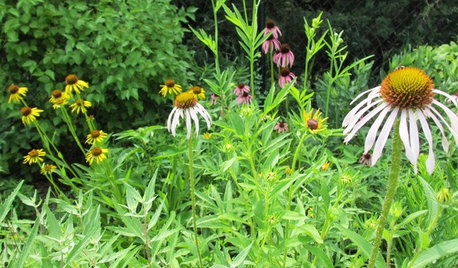
FLOWERSGet Coneflower Blooms All Summer Long
Plant these 5 native species to bring beauty to the garden — and pollen to the insects — from June through August
Full Story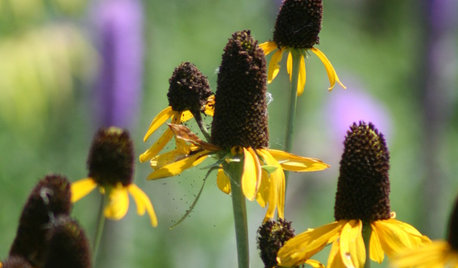
GARDENING FOR BUTTERFLIESGreat Design Plant: Giant Coneflower, a True Exclamation Point
Watch as towering stalks topped by yellow blossoms become a beacon for birds and insects in the midsummer garden
Full Story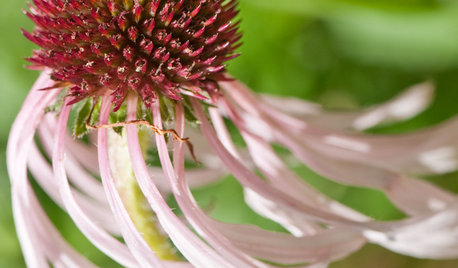
GARDENING GUIDESGreat Design Plant: Echinacea Pallida
Plant pale purple coneflower in perennial gardens or informal prairie plantings for spring blooms, bees and butterflies
Full Story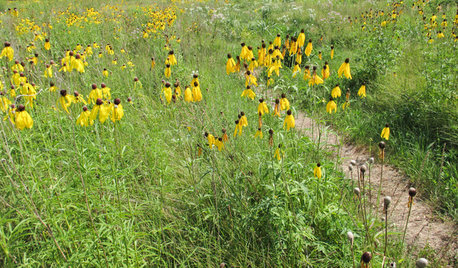
GARDENING GUIDESGreat Design Plant: Ratibida Pinnata Flutters in the Breeze
This bright coneflower brings splashes of yellow to eastern U.S. prairie gardens and perennial borders
Full Story
GARDENING GUIDESCentral Plains Gardener's June Checklist
The flowers are coming! The flowers are coming! And so are the butterflies, hummingbird moths and coneflower diseases
Full Story0
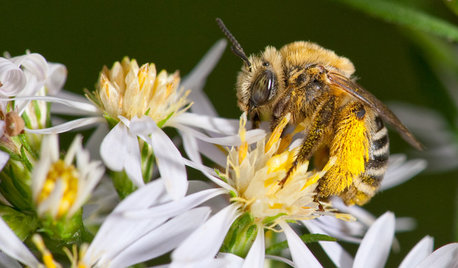
GARDENING GUIDESLook for Long-Horned Bees on Summer's Flowers
These insects are busy in the garden come summer and fall, pollinating sunflowers, coneflowers, asters and more
Full Story
LANDSCAPE DESIGNRelish the Romance of a Slovenian Garden
Dappled with coneflowers and bursting with hydrangeas, a romantic European garden near the Julian Alps inspires enchantment
Full Story
GARDENING GUIDESGreat Design Plant: Ratibida Columnifera
A shortgrass prairie native wildflower fit for pollinators and dry trouble spots offers benefits all year long
Full Story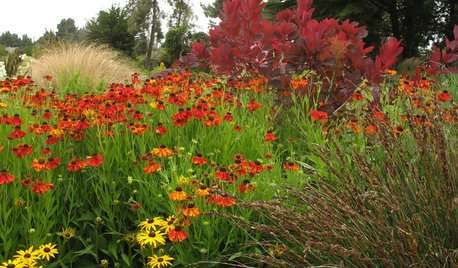
GARDENING FOR BUTTERFLIESGreat Design Plant: Mardi Gras Sneezeweed Throws a Color Party
It brings high energy, takes low maintenance and wears a brilliant outfit. If only all garden guests were this dandy
Full Story
GARDENING GUIDES3 Ways to Revel in Summer Garden Sweetness
Patiently observe what works and doesn’t work in your landscape
Full StoryMore Discussions






Daisyduckworth
Traute_Biogardener
Related Professionals
Aloha Landscape Contractors · Bergenfield Landscape Contractors · Brownsville Landscape Contractors · Deerfield Landscape Contractors · Fort Mill Landscape Contractors · Hendersonville Landscape Contractors · Lemont Landscape Contractors · Middleton Landscape Contractors · Sammamish Landscape Contractors · Markham Landscape Contractors · Buffalo Carpenters · Escondido Carpenters · Mokena Carpenters · Odenton Carpenters · Burlington Roofing & Guttersthorspippi
johnyb
Heathen1
johnyb
Heathen1
johnyb
thorspippi
Heathen1